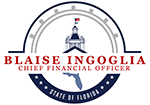Identity Theft Quiz
Test your skills at thwarting identity thieves!
Answer these yes or no questions. Every yes answer puts you at risk for becoming a victim of identity theft.
Using the same password may save you some seconds in your day, but those seconds can cost you if just one of your accounts is hacked. Invest in the effort to create a password that uses a minimum of 12 upper and lower-case characters and numbers. (A minimum of 8 characters used to be the standard but identity thieves have upped their game.) Make sure to include at least one symbol such as an ampersand (&) or percent sign (%). Don’t worry if you forget your password, there are procedures in place to reset it.
Changing passwords often will net you extra protection.
To access your accounts, you need to use personal information, like your username and password. What if your personal information has been part of a data breach? Multi-factor authentication (MFA) makes it harder for identity thieves to log into your accounts even if they have gotten access to your initial credentials. This extra security measure requires a user to present a combination of two or more credentials to verify a user’s identity for login. Additional credential will be something you have, like getting a text to your cellphone, or something you are, like a scan of your fingerprint or face. Now you’ve learned about MFA, request it whenever you can.
Scenario One:
Before your workout, you carefully put your wallet in your locker at the gym, so you won’t lose it. Unfortunately, the lock didn’t close all the way.
Scenario Two:
You spilled coffee on your favorite shirt. In a rush to the bathroom to clean up, you left your purse at the table.
End to both of these scenarios: Someone got your wallet, your bank card and a key piece of your personal identification. A quick trip to the ATM and your loss is someone’s gain.
What does your social media account have to do with the possibility of identity theft? When someone first sets up an account, they are generally required to answer some security questions like what is your mother’s maiden name, what is your first car, what street did you grow up on? These can be used to reset a password or verify your identity when updating a credit card. If your mom is connected to your account, an internet search could easily turn up her maiden name, same with which street you grew up on. And maybe you have posted a pic of your new car which happens to be the same kind of car you’ve driven forever. Choose your security questions and answers carefully.
Your bank WILL NOT CALL YOU, asking for any personal information. Your caller ID may identify as your bank, but a scammer may be using Caller ID Spoofing. Anyone calls asking for personal information, hang up.
Trick question! It’s okay if you recycle your personal and financial documents as long as you shred them before recycling! Cross-cut shredding is the most fool-proof way to keep identity thieves (who aren’t ashamed to rifle through your recycling bin) from pillaging your personal information. (Don’t want confetti floating around your neighborhood on recycle day? Put your shredded paper in a paper bag and triple fold.)
Identity thieves are banking on you missing an erroneous charge or two. If they have successfully charged a few items over a few-day period, they may think the coast is clear to go on a real spending spree. Report any charges you don't recognize to your bank immediately and cancel your credit cards.
Mistakes do happen, and they can’t be fixed if you don’t know about them.
